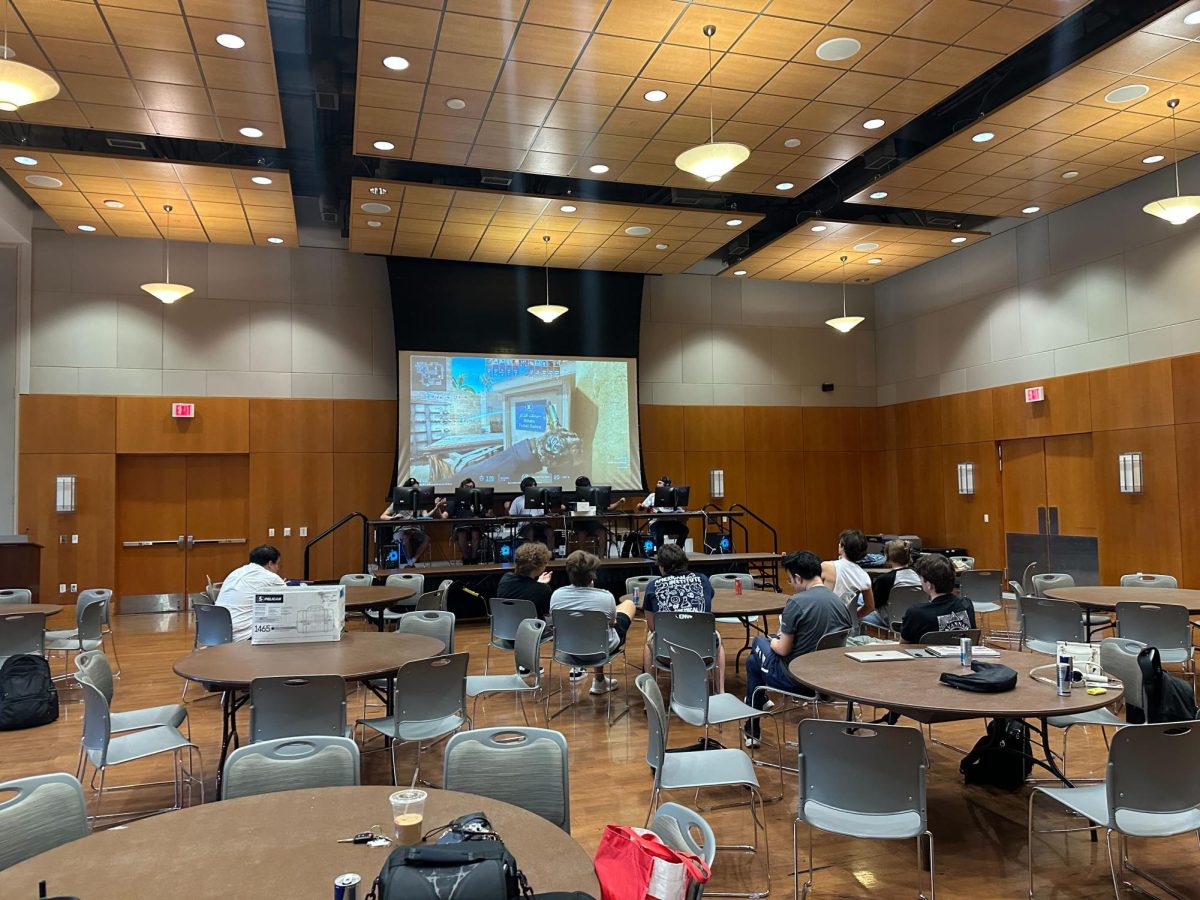As esports rapidly gain traction worldwide, universities are beginning to recognize its cultural significance, and UT is no exception. Following a recent showdown against Texas A&M esports, Longhorn gaming has received notable support and resources, positioning it as a pioneering community for competitive gaming on campus.
The esports culture at Texas fosters camaraderie, teamwork and a shared sense of purpose, drawing students from all backgrounds. Many players join Longhorn gaming out of a love for gaming, but discover a structured, team-oriented environment similar to traditional sports teams. Competing becomes more than just winning — it’s about building lasting connections and working toward shared goals.
“The team atmosphere is special because of the bonds you form with your teammates,” sophomore Julian Peng, director of Longhorn gaming, said.
This team spirit transforms esports from a casual interest into a serious pursuit, uniting students under the banner of UT and building a community that thrives on mutual support and competitive excellence.
Competing in esports at the collegiate level has its challenges, especially for Texas students, where esports remains a club activity without scholarships. Players must juggle the rigorous demands of academics and their commitment to competitive gaming.
“The players are really just playing for fun — they don’t have money or scholarships on the line,” said Peng.
However, the school is increasing its support for its esports community, providing resources that allow players to compete at a higher level. One standout addition is the Alienware Longhorn Esports Arena and Lounge, a state-of-the-art facility equipped with high-end gaming PCs, 360 Hz monitors and top-notch Alienware stations that are inclusive of all players.
“Gaming has kind of been the underdog, underestimated in how big it is,” Longhorn gaming’s outreach coordinator senior Nicole Miranda said. “So to see the University support it is really amazing. It makes students happy and helps esports grow more on campus.”
Freshman Shreshth Saride, a varsity competitor and team manager for Valorant, a popular tactical shooter game, praised the University’s efforts.
“UT is one of the best schools for esports support,” Saride said.
Beyond just providing physical resources, Longhorn gaming also connects players with coaching and team-building opportunities, fostering an environment where students of all skill levels can thrive competitively.
However, Saride and other members believe that Texas could still expand resources and host more events to attract broader participation by building on this foundation, saying that putting the esports program alongside the UT name would be great for increasing exposure.
Saride also emphasized the school’s inclusivity and his hopes for the future of esports at Texas.
“UT provides a phenomenal experience for everyone … at their skill level, at higher skill levels,” he said.















